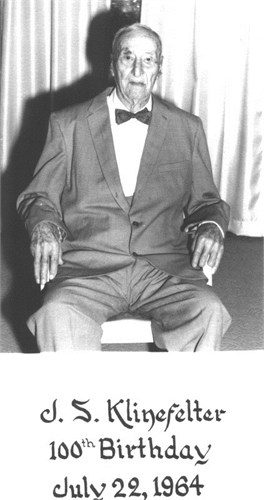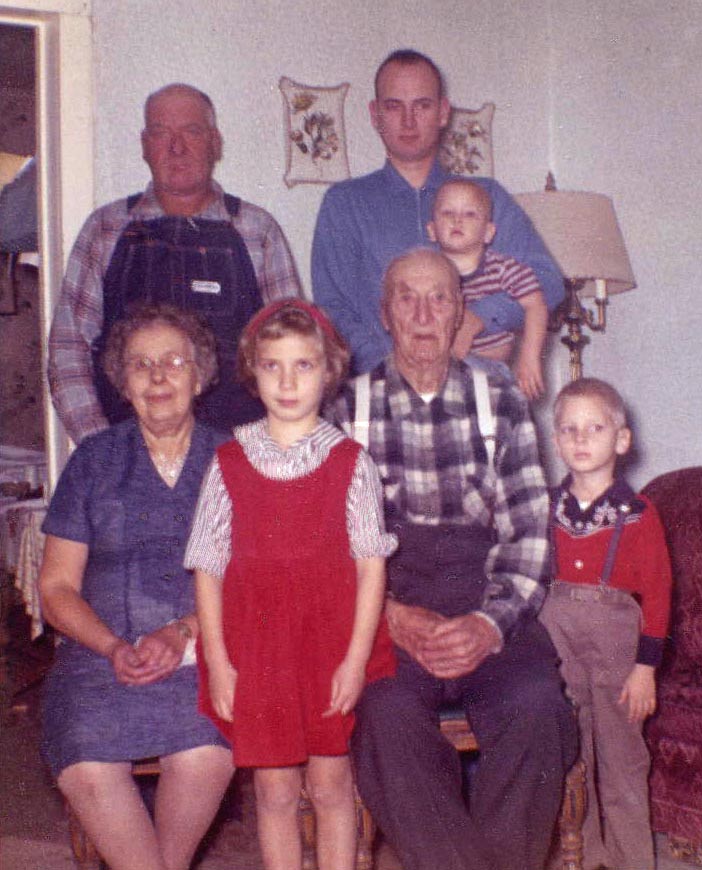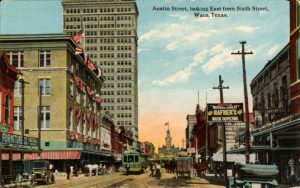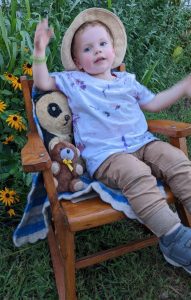
If you would have told me earlier this year that by the end of the year I would have had the opportunity to hear the voice of a family member born during the Civil War almost 160 years ago, I would have chuckled and told you, “Not likely.” But, believe it or not, it happened!
Collecting Records
I had communicated and shared records with Rod’s Dad’s first cousin Dean Thomson for years. However, from time to time Dean mentions something that we haven’t heard before. So, we decided that we needed to go through all of Dean’s records to make sure that we had all of his records. So, this year we decided to go visit Dean and scan/photograph any records that we did not have or where a better copy could be useful. Well, we found that to be a bit cumbersome and decided that it would be much easier to simply scan/photograph everything he had on our shared family lines. Given the volume of information, it was clear that one trip would not be enough no matter how quickly we went through his many notebooks. So we scheduled another visit.
On the second visit, Dean mentioned a tape that was in a box on the table. He told us that it was old (recorded 60 years ago) and that he wasn’t sure it would even play. However, he said that we could take it home and see if we could get it to play. It was a tape of a brief interview with Judge Sharpless Klinefelter.
The Tape
After we got home, we hunted up an old cassette player. It worked. And, the tape played. Judge Sharpless Klinefelter, Rod’s great-great grandfather, began by saying, “I was born in Pittsburgh, Pennsylvania in 1864.” Next year will be the 100th anniversary of his birth. Yet, here we were listening to his voice.
He was 98 years of age when he answered the questions about his ancestry, career, places he lived, his children, and more. His answers were brief and we had a 100 other questions that we would have loved to have asked him.
We already knew the answers to many of the questions, but it was so interesting to hear his account of his life in his own words. Just listening to his voice and realizing how much had changed between the time he was born and the time the recording was made was amazing. And, it has changed even more in the 60 years since he spoke those words.
Judge was born before slavery was abolished, although that occurred shortly after his birth. Additionally, women did not yet have the right to vote. He would go on to live through the flu epidemic, prohibition, the Great Depression, WWI, and WWII.
But this was also in the time prior to the invention of the automobile, the telephone, the refrigerator, indoor plumbing, electricity, and much more! He had lived long enough to see silent films, talkies as the early movies with sound were called, and television.
Clip of Interview
This is a clip of the interview with Judge Sharpless Klinefelter. It was originally recorded on cassette tape on January 27, 1963. Judge was 98 years of age.
The interviewer is Dean Thomson. The other voice heard on portions of the tape is Blanche Mabel (Klinefelter) Thomson.
Both Judge and Blanche would die the following year.
A Peek Into Judge’s Life
Based on His Interview with some added details

His Name
Judge was named after his Uncle Judge Sharpless Klinefelter. Neither of them were ever a judge in the judicial sense. Still, he viewed the name more as a title than a name.
His Parents
Judge was born in 1864 in Pittsburgh, Pennsylvania to parents Joseph Gazzan and Caroline (Stetler) Klinefelter. At the time of his birth, his father was serving in the Union Army where he was a POW and was injured. His parents would have no more children.
His Wives & Descendants
Judge married Emma Ackermann in 1886 in Pittsburgh, Pennsylvania. They had a daughter Blanche (who also speaks on the recording). Fifteen months after Blanche was born, Emma died giving birth to their son Daniel, who also died and is buried with Emma. Judge’s parents primarily raised Blanche.
Ten years after his first marriage, Judge married Lois Campbell. They had two daughters together: Carolyn Elmina, who married Elbert Shelton, and Hortense Lucile, who married Henry Dalson. Judge and Lois later divorced.
In 1920, Judge married Martha Edwards. They had no children. She died in 1936. Judge did not remarry.
Longevity
Judge mentioned that his great-grandmother [Elizabeth Mason (Stackhouse) Brooks] lived to be just a few months shy of 100 years. He must have inherited her longevity.
Famous Ancestor
Judge was aware that he descended from the man [William Hurrie] who rang what is now known as the Liberty Bell to signal that the Declaration of Independence had been signed and was going to be read at the State House in Philadelphia.
Politics
Judge remembered the politics of old. He mentioned the days when politicians would have parades. He said that his family had been Republican, but he said that he didn’t know if he was of any affiliation, but he did lean more toward the Republican side.
His Career
Judge was a carpenter. It was a skill that he learned from his father. He built or oversaw (foreman or building superintendent) the building of many homes and other buildings, including very tall buildings. His career took him all over the eastern half of the country where he built buildings as far north as Pittsburgh, Pennsylvania (and maybe further north), as far south as Florida, and as far west as Waco, Texas. He said that he basically went wherever buildings needed to be built.
Based on what he said and family stories, it is possible that the building he oversaw in Waco, Texas is the Alico Building, which is 22 stories high and was built in 1910-1911. That building withstood a direct hit of a tornado in 1953, while other buildings around it was destroyed. The building is still in use today and is on the National Register of Historic Places.

Automobiles
Judge remembered the horse and buggy days very well as they were the predominant mode of transportation for over half of his life.
The surprising fact, however, is that Judge claims to have never owned a car or even driven a car. He would have only been in his forties when Ford produced the first Model T cars. I would love to have asked him, “Why he hadn’t owned or driven a car?” After all, it seemed like a car would have been very useful to him.
Retirement
In his retirement years, he kept busy doing smaller carpentry projects. One of these projects was to make children rocking chairs. He was active with projects until he was 99.
